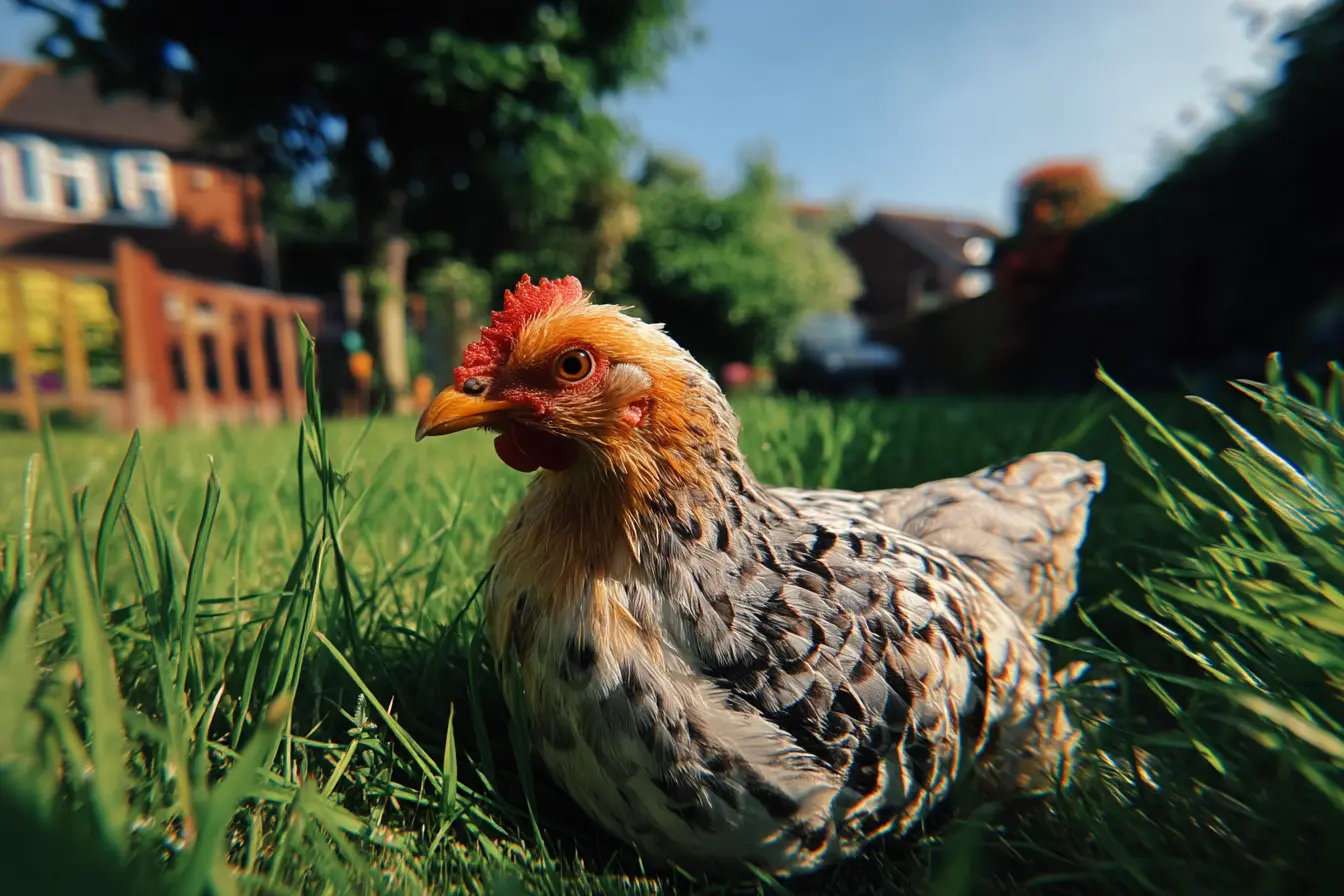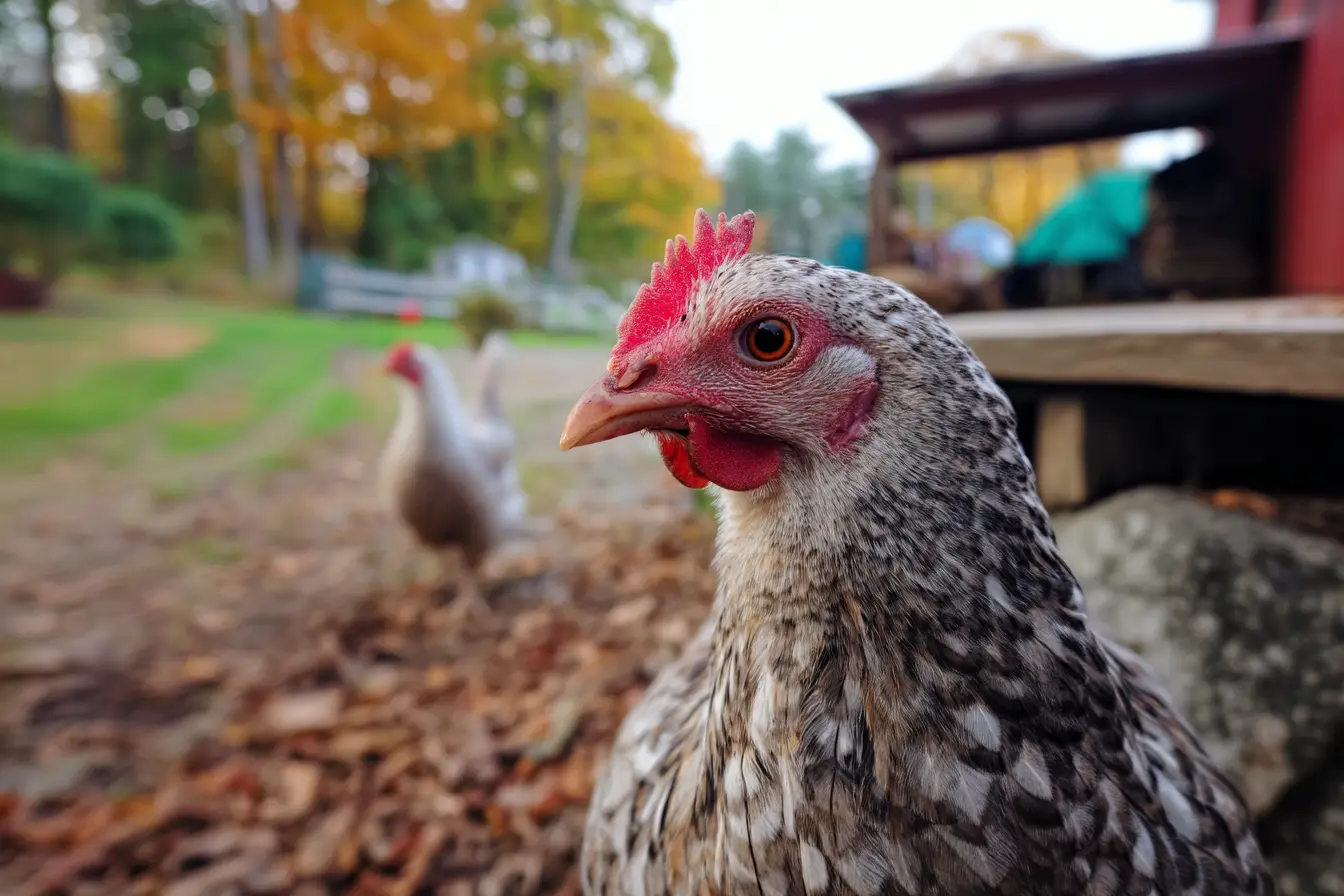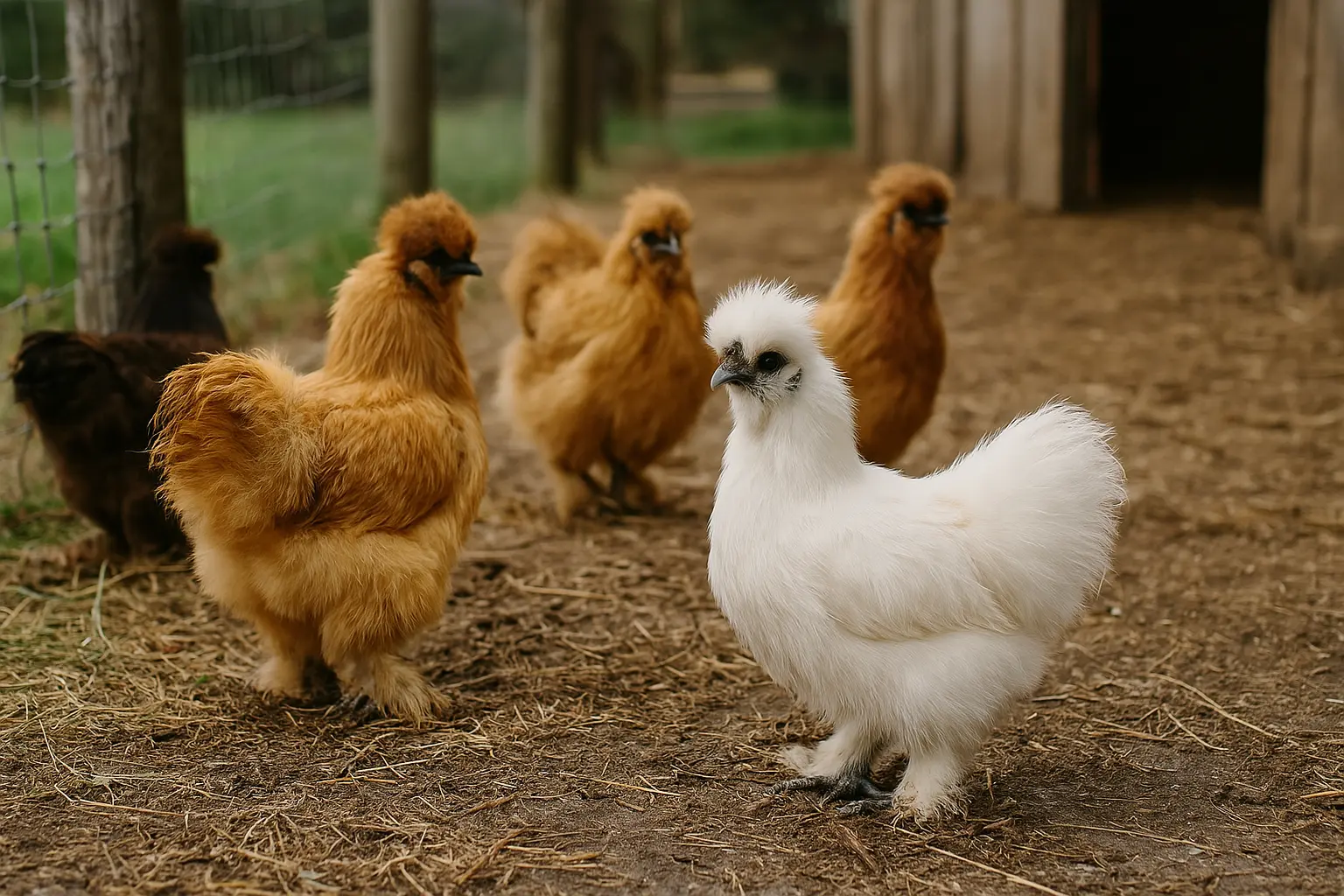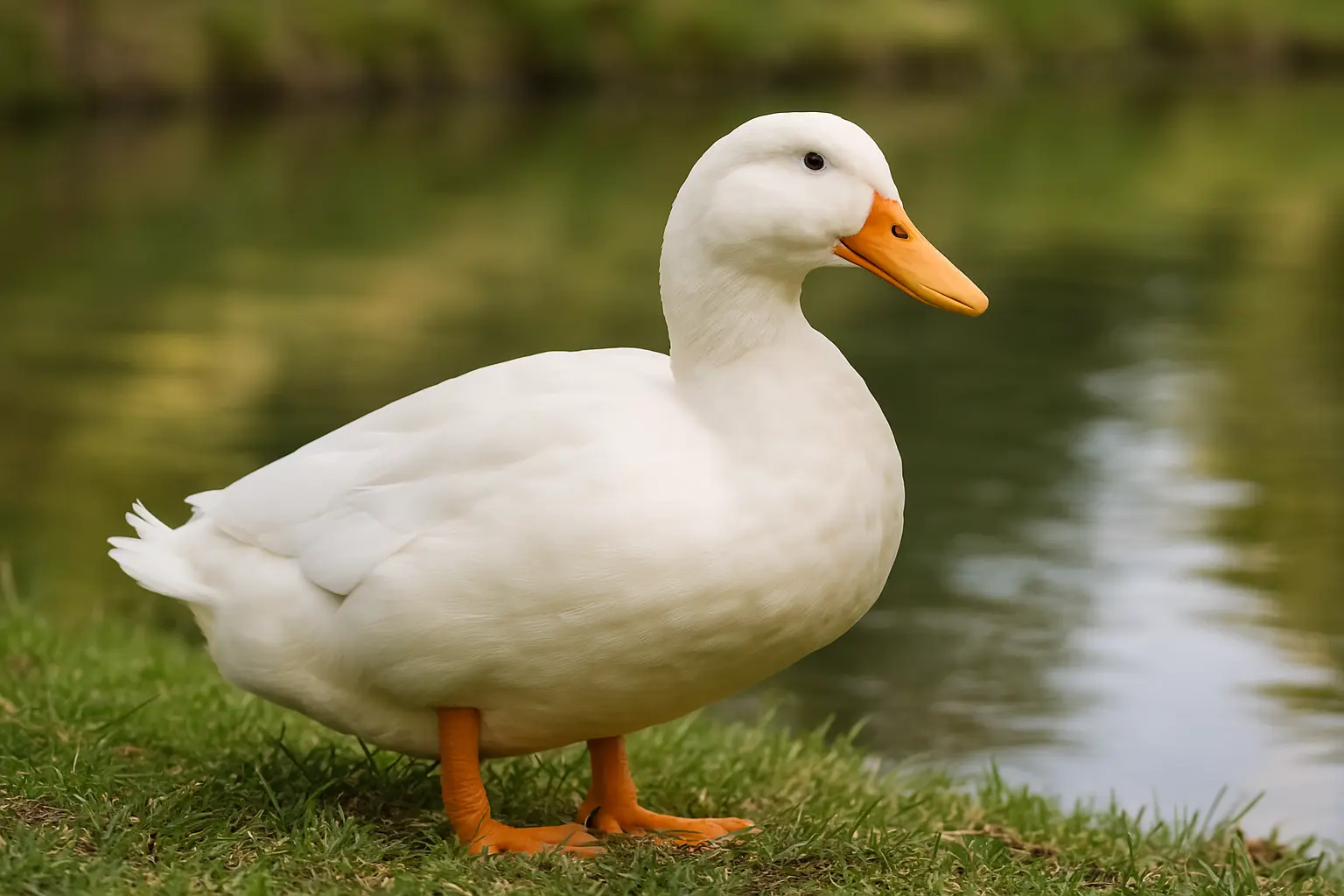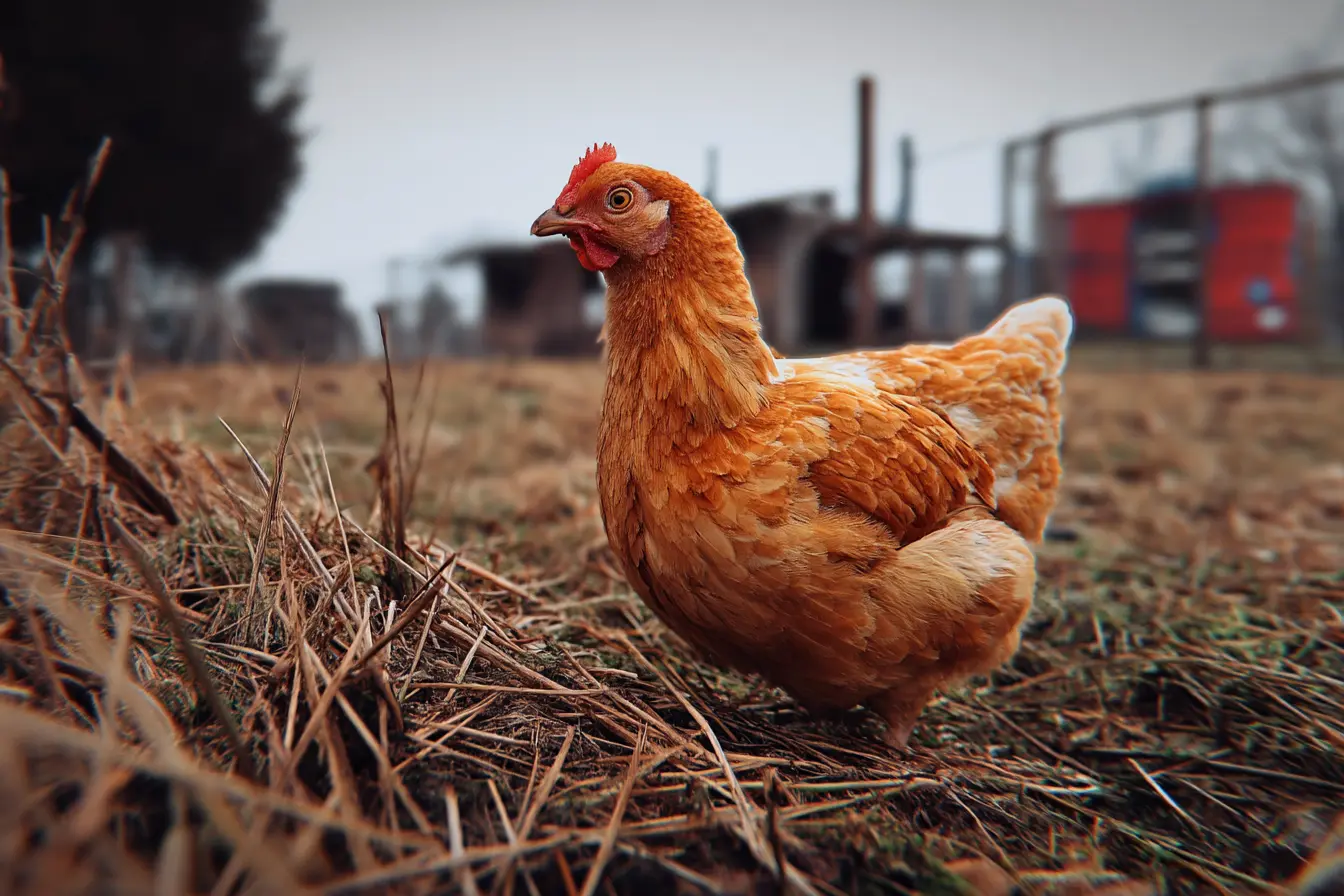
A Complete Guide to Keeping Orpington Chickens
Orpington chickens are a beloved choice for UK poultry keepers, known for their friendly temperament, stunning appearance, and excellent egg-laying abilities. Whether you're new to chicken keeping or looking to expand your flock, this guide will provide everything you need to know about caring for Orpington chickens.
Introduction to Orpington Chickens
Originating from Orpington, Kent in the late 19th century, Orpington chickens were developed to be a dual-purpose breed, valued for both egg production and meat. Today, they are popular as ornamental birds and backyard companions due to their calm and affectionate nature.
Key Characteristics:
- Lifespan: 8-10 years with proper care
- Egg Production: 150-200 medium to large brown eggs per year
- Temperament: Gentle, friendly, and easy to handle
- Size: Large (hens weigh 3-4 kg, cockerels 4-5 kg)
- Colour Varieties: Buff, black, blue, white, and lavender
- Cold-Hardy: Well-suited to the UK's climate, though they require dry conditions
Why Choose Orpington Chickens?
Orpingtons are a fantastic choice for poultry keepers for several reasons:
- Great for Families: Their calm and friendly nature makes them ideal for households with children.
- Beautiful Appearance: Their fluffy plumage and range of colours make them a visually stunning addition to any flock.
- Good Egg Layers: While not the most prolific layers, they provide a steady supply of eggs.
- Cold-Hardy: Their dense feathers help them withstand the UK's chilly weather.
- Excellent Pets: They enjoy human interaction and can be easily tamed.
Housing Requirements
Providing suitable housing is crucial to ensure your Orpingtons remain healthy and happy.
Coop Requirements
- Size: Orpingtons are large birds, so allow at least 0.5 square metres per bird inside the coop.
- Ventilation: Proper airflow is necessary to prevent respiratory issues.
- Nesting Boxes: One box per 3-4 hens, lined with soft bedding like straw or wood shavings.
- Perches: Due to their weight, provide wide, low perches (5-7 cm width) to support their feet.
Run and Free-Range Space
Despite their size, Orpingtons enjoy roaming and exploring their surroundings.
- Minimum Run Size: At least 1.5 square metres per bird, but more space is always better.
- Free-Range Benefits: They love to forage but should be supervised due to their slower movement and risk of predators.
- Predator Protection: Secure fencing and covered areas help protect them from foxes and other threats.
Tip: Orpingtons are prone to obesity, so allowing them space to move around is essential for their health.
Feeding Your Orpington Chickens
A nutritious diet is key to maintaining their health and supporting egg production.
Essential Nutrition
- Layers Pellets (16-18% protein): Provide a balanced diet for laying hens.
- Grit and Oyster Shells: Essential for digestion and calcium intake for strong eggshells.
- Fresh Greens and Treats: Offer occasional kitchen scraps such as leafy greens, fruit, and mealworms.
- Fresh Water: Ensure clean water is available at all times, especially in hot weather.
Feeding Tip: Due to their large size, Orpingtons can be prone to weight gain, so avoid excessive treats and monitor their feed intake.
Health and Common Concerns
Orpingtons are generally healthy and robust, but their fluffy feathers can make them prone to certain health issues.
Common Health Issues
- Obesity: Their calm nature means they can easily become overweight, affecting egg production and mobility.
- Lice and Mites: Their dense feathers provide an ideal hiding spot for parasites; regular checks and treatments are essential.
- Respiratory Problems: Ensure the coop is well-ventilated to avoid damp conditions that can lead to infections.
- Bumblefoot: Watch for foot injuries due to their heavy weight, which can make them more susceptible to infection.
Preventative Care: Regular health checks, a clean environment, and a balanced diet will help keep them in top condition.
Orpington Chicken Behaviour and Handling
Orpingtons are one of the most docile and affectionate chicken breeds, making them perfect for those who enjoy hands-on care.
- They enjoy being handled and will often follow their owners around the garden.
- They integrate well with other breeds but may be at risk of bullying due to their gentle nature.
- Their calm temperament makes them less prone to flightiness and easy to contain in lower fences.
Handling Tip: Handle them regularly from a young age to ensure they remain tame and friendly.
Egg Production and Collection
While not the most prolific layers, Orpingtons provide a steady supply of delicious eggs.
Egg-Laying Habits
- Expect around 3-4 eggs per week, with production slowing in winter.
- They usually begin laying at 5-7 months of age.
- Egg colour is typically light brown, and the eggs are of good size.
Egg Collection Tip: Collect eggs daily to prevent hens from becoming broody and to ensure clean eggs.
Winter Care for Orpington Chickens
Thanks to their thick plumage, Orpingtons can tolerate cold weather well, but they do need extra care in wet and muddy conditions.
- Shelter: Provide a dry, draft-free coop to prevent their feathers from becoming waterlogged.
- Bedding: Use thick bedding such as straw to provide insulation during colder months.
- Water Management: Ensure drinkers do not freeze; heated drinkers can help.
- Extra Feed: Increase their food intake slightly to help them maintain their body heat.
Winter Tip: Avoid letting them roam in muddy conditions, as their feathers can become heavy and dirty.
Breeding and Raising Chicks
Orpingtons are known for their broodiness and make excellent mothers if you're interested in hatching chicks.
Breeding Tips
- Provide a quiet nesting area for broody hens.
- Use an incubator if natural brooding isn't an option.
- Chicks require warmth, chick crumbs, and a secure brooder for their first few weeks.
Growth Rate: Orpington chicks grow slowly and take longer to reach maturity compared to other breeds.
Legal Considerations in the UK
Before keeping Orpington chickens, it's essential to be aware of UK poultry regulations.
- DEFRA Regulations: Follow biosecurity measures to prevent avian diseases.
- Local Council Rules: Check for restrictions on noise and flock size in your area.
- Neighbour Considerations: Keep noise levels and cleanliness in check to avoid complaints.
Conclusion
Orpington chickens are an excellent choice for UK poultry keepers seeking a friendly, attractive, and reliable breed. Their gentle temperament, good egg production, and beautiful plumage make them an ideal addition to any flock.
By providing proper housing, a balanced diet, and regular care, your Orpingtons will reward you with companionship and a steady supply of eggs for years to come.
Contents
- Introduction to Orpington Chickens
- Why Choose Orpington Chickens?
- Housing Requirements
- Feeding Your Orpington Chickens
- Health and Common Concerns
- Orpington Chicken Behaviour and Handling
- Egg Production and Collection
- Winter Care for Orpington Chickens
- Breeding and Raising Chicks
- Legal Considerations in the UK
- Conclusion
Tags
Vets near you
Speciality vets
- Aquatics vet specialists
- Birds vet specialists
- Camelids vet specialists
- Cats vet specialists
- Cattle vet specialists
- Deer vet specialists
- Dogs vet specialists
- Equines vet specialists
- Exotic vet specialists
- Goats vet specialists
- Pigs vet specialists
- Poultry vet specialists
- Sheep vet specialists
- Small Mammals vet specialists
- Wild vet specialists
Vet facilities
- Accessible by public transport
- Blood testing
- Car park nearby
- Client car park
- Dentistry
- Diagnostic imaging
- Disabled public access
- Flea and worm treatments
- Microchipping
- Mobile services
- Neutering
- Open at weekends
- Out-of-hours service
- Referral interests
- Referrals only
- Street parking outside
- Toilets available
- Vaccinations
